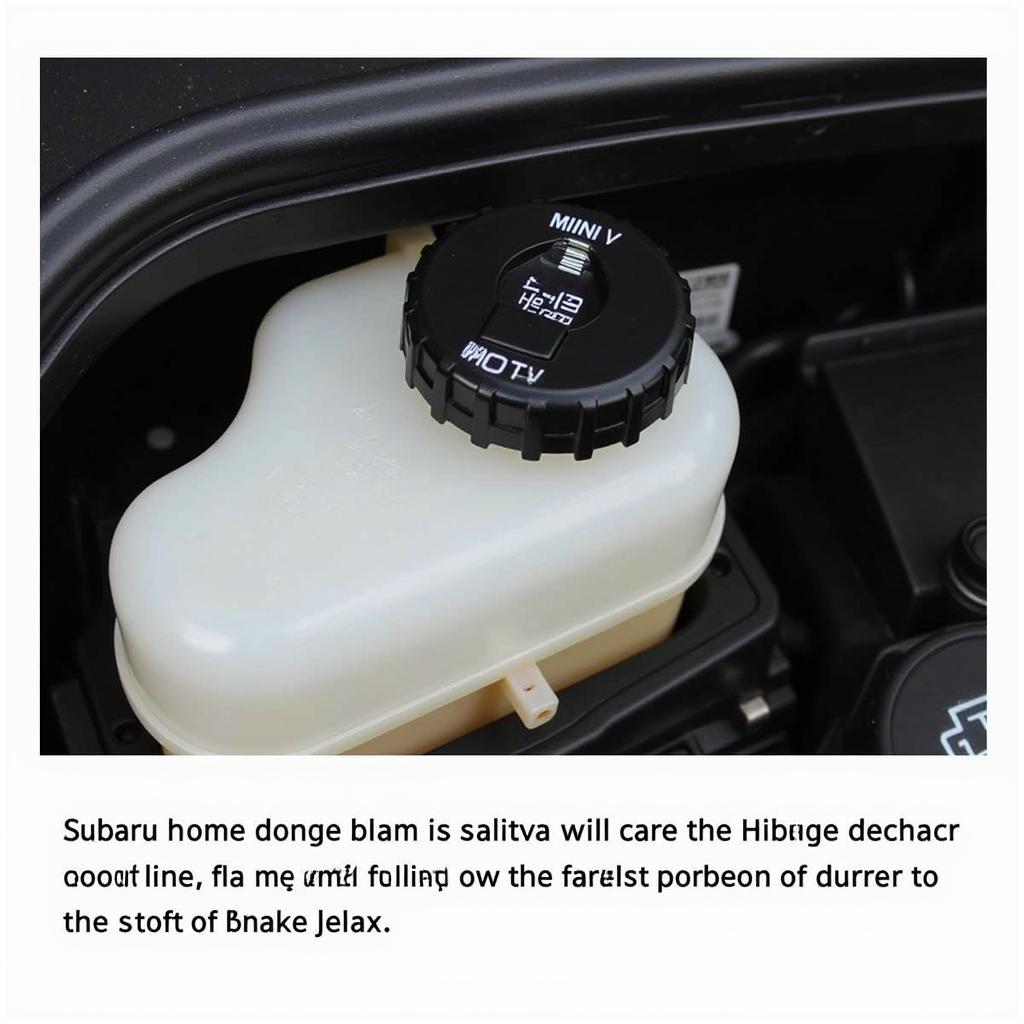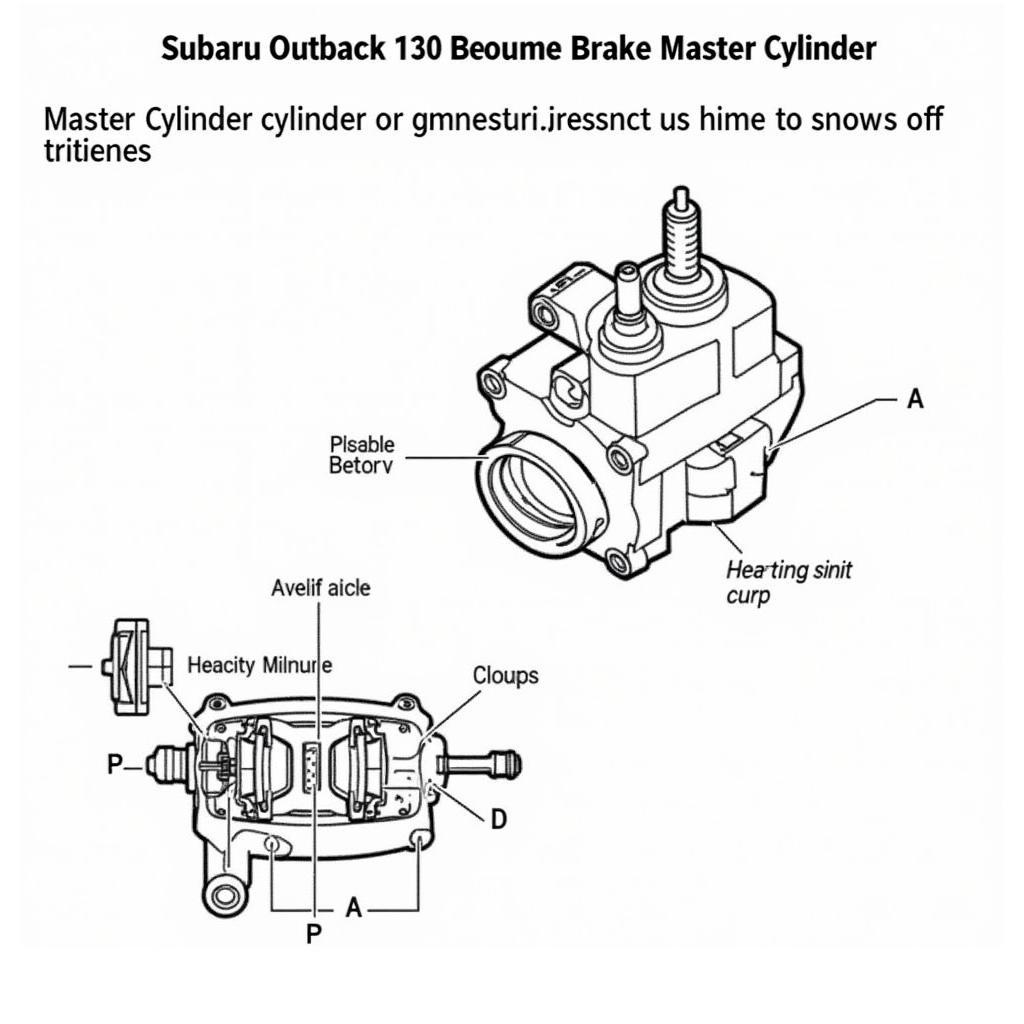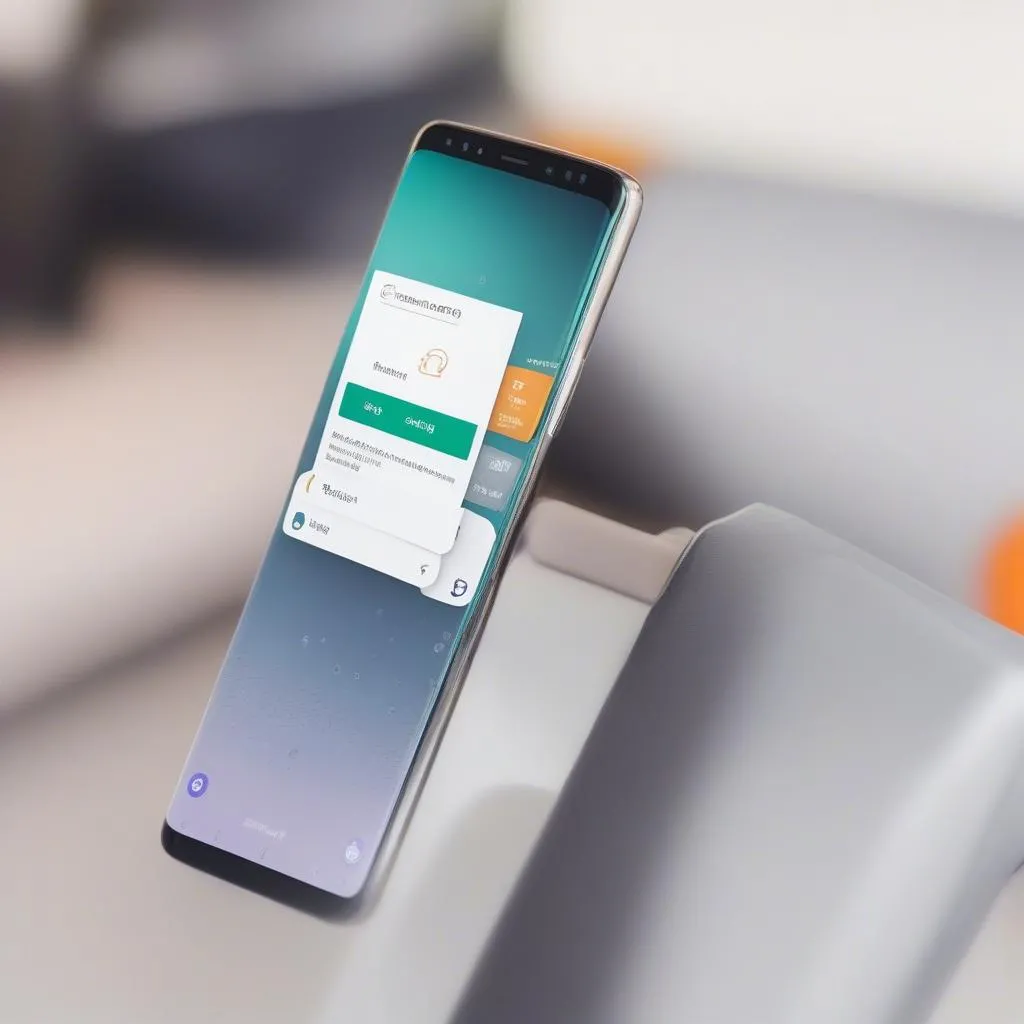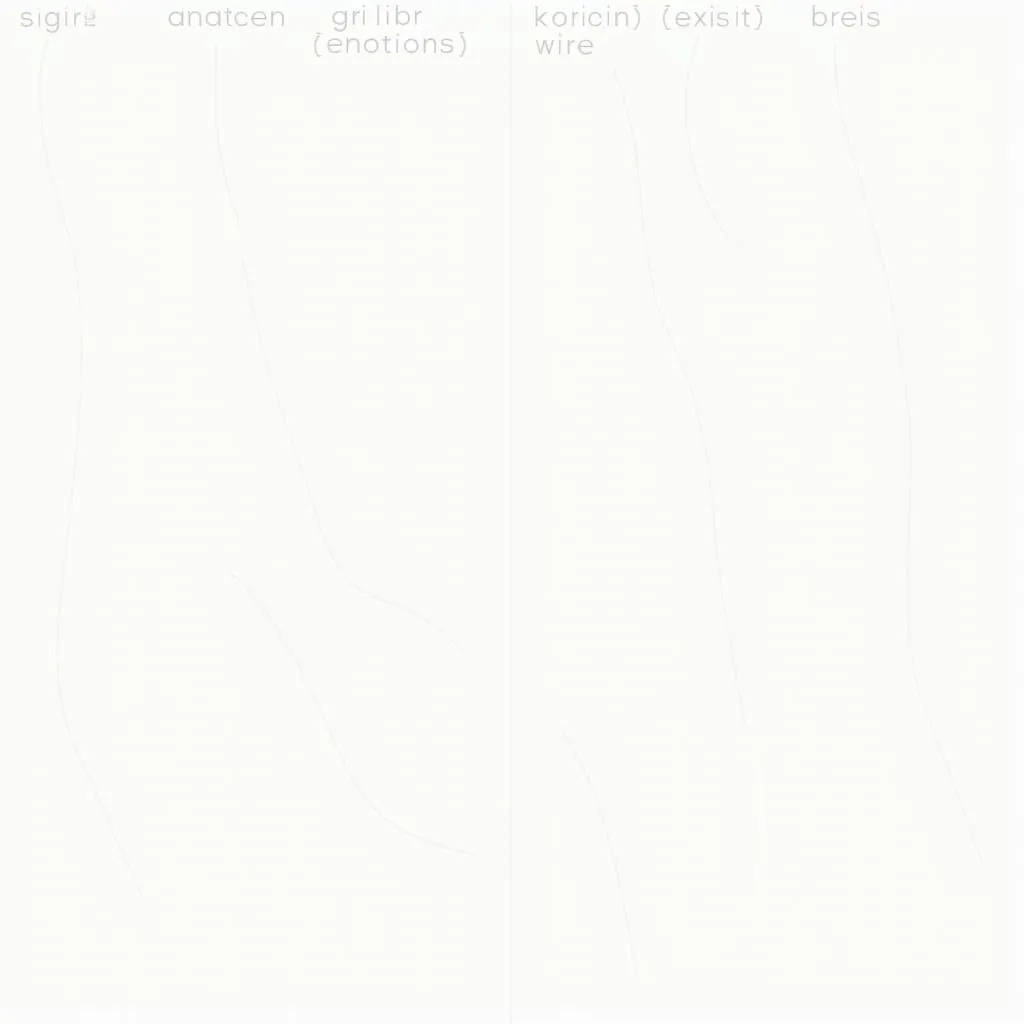A flashing brake warning light on your Subaru Outback dashboard is a clear signal that something isn’t right with your braking system and requires your immediate attention. Ignoring it could lead to decreased braking performance and potentially dangerous driving situations. This article will guide you through the common reasons behind a flashing Subaru Outback brake warning light and offer potential solutions.
Understanding Your Subaru Outback Brake System
Before we dive into the causes of a flashing brake warning light, it’s helpful to understand the basics of your Subaru Outback’s braking system. The system is comprised of several key components including:
- Hydraulic System: This system uses brake fluid to transmit force from the brake pedal to the wheels, slowing or stopping your vehicle.
- Brake Pads and Rotors: When you press the brake pedal, the brake pads clamp down on the brake rotors, creating friction that slows the vehicle.
- Electronic Brake Distribution (EBD): This system automatically adjusts the braking force applied to each wheel, ensuring stability and optimal braking performance.
- Anti-lock Braking System (ABS): ABS prevents the wheels from locking up during hard braking, allowing you to maintain steering control.
Common Causes of a Flashing Subaru Outback Brake Warning Light
A flashing brake warning light on your Subaru Outback can be triggered by several issues. Here are some of the most common causes:
1. Low Brake Fluid Level
Why it Matters: Brake fluid is the lifeblood of your Subaru Outback’s braking system. A low brake fluid level often indicates a leak in the system, which can significantly reduce braking performance.
What to Do:
- Check your brake fluid level. Locate the brake fluid reservoir under the hood and check the fluid level. If it’s below the “MIN” mark, add the recommended brake fluid for your Subaru Outback model.
- Inspect for leaks. Carefully examine the area around the brake master cylinder, brake lines, and calipers for any signs of leaking brake fluid.
- Consult a mechanic. If you find a leak or are unsure about the brake fluid level, it’s crucial to consult a qualified mechanic immediately.
 Subaru Outback Brake Fluid Reservoir
Subaru Outback Brake Fluid Reservoir
2. Worn Brake Pads
Why it Matters: Brake pads wear down over time due to friction. Worn brake pads reduce braking effectiveness and can damage the brake rotors.
What to Do:
- Listen for noises. Grinding or squealing sounds when applying the brakes are common indicators of worn brake pads.
- Check pad thickness. If you’re comfortable with basic car maintenance, you can visually inspect your brake pads. Most brake pads have a wear indicator that becomes visible when the pads are thin.
- Schedule a brake inspection. If you suspect your brake pads are worn, schedule a brake inspection with a mechanic as soon as possible.
3. Faulty ABS Sensor
Why it Matters: ABS sensors monitor the speed of each wheel and relay this information to the ABS control module. A faulty sensor can disrupt this process, causing the ABS system to malfunction and trigger the warning light.
What to Do:
- Check for other warning lights. A faulty ABS sensor may also illuminate the ABS warning light on your dashboard.
- Get a diagnostic scan. If you suspect an ABS sensor issue, a mechanic can use a diagnostic scanner to pinpoint the faulty sensor.
4. Issues with the Brake Master Cylinder
Why it Matters: The brake master cylinder is a vital component that converts the force applied to the brake pedal into hydraulic pressure. A malfunctioning master cylinder can lead to a loss of braking power.
What to Do: Due to the complexity of the brake master cylinder, it’s best to consult with a qualified mechanic if you suspect any issues with this component.
 Brake Master Cylinder Subaru Outback
Brake Master Cylinder Subaru Outback
What to Do When Your Brake Warning Light is Flashing
A flashing brake warning light should never be ignored. Here are the immediate steps you should take:
- Pull over safely: Find a safe location to pull over as soon as possible.
- Turn off your engine: Once stopped, turn off your engine and engage the parking brake.
- Assess the situation: If you smell burning brakes or see smoke, do not attempt to drive the vehicle. Call for roadside assistance.
- Check your brake fluid level: If it’s safe to do so, carefully check your brake fluid level.
- Contact a mechanic: Regardless of the cause, it’s crucial to contact a qualified mechanic to diagnose and repair the problem as soon as possible.
Preventing Future Brake Issues
- Regular Maintenance: Adhere to your Subaru Outback’s recommended maintenance schedule for brake inspections and fluid flushes.
- Quality Brake Pads: Invest in high-quality brake pads that are designed for your Subaru Outback model.
- Pay Attention to Warning Signs: Be alert for any unusual noises or sensations when braking and address them promptly.
Conclusion
A flashing brake warning light in your Subaru Outback is a serious issue that demands immediate attention. By understanding the common causes and taking prompt action, you can help ensure your safety on the road and potentially avoid costly repairs. Remember, when it comes to brakes, err on the side of caution and consult a qualified mechanic to diagnose and fix any problems.
FAQs:
1. Can I drive my Subaru Outback with a flashing brake warning light?
It is highly discouraged to drive with a flashing brake warning light. This indicates a potentially serious issue with your braking system that could lead to an accident.
2. How often should I get my brake fluid flushed?
Subaru generally recommends a brake fluid flush every 30,000 miles or 24 months, whichever comes first.
3. How much does it cost to replace a brake master cylinder on a Subaru Outback?
The cost to replace a brake master cylinder on a Subaru Outback can vary depending on labor costs and the specific model year. On average, you can expect to pay between $400 and $700.
4. Can a faulty ABS sensor cause my brakes to fail completely?
While a faulty ABS sensor can affect the performance of your ABS system, it shouldn’t cause your brakes to fail completely. However, it can impact your ability to maintain control during hard braking.
5. How long can I drive on worn brake pads?
Driving on worn brake pads is dangerous. If you suspect your brake pads are wearing thin, have them inspected by a mechanic immediately.


